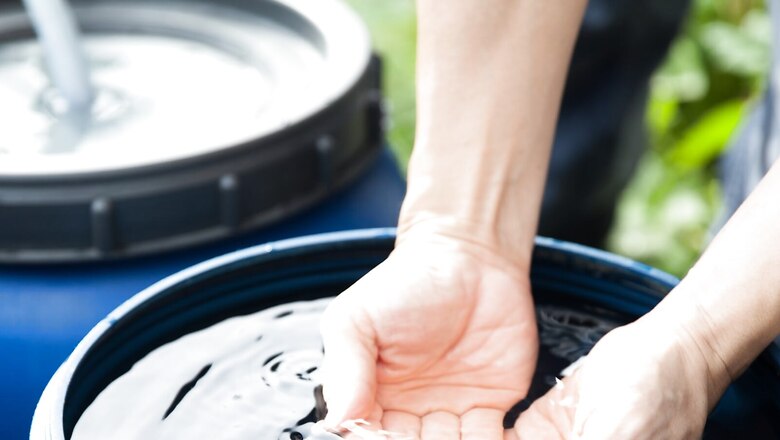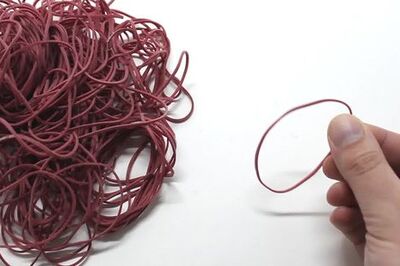
views
A smart water-recycling system for kitchen sinks designed by science and engineering students of GITAM (Deemed to be University) to ease water crisis in Indian cities, has won the grand finale of Smart India Hackathon, Hardware Edition at the nodal center B.S. Abdur Rahman Crescent Institute of Science and Technology, Tamil Nadu. The team, which worked on the Project Hydrogravitricity, were declared winners in their problem statement category among five other teams competing from different parts of India.
The students designed an eco-friendly and smart grey-water filtration system called Hydrogravitricity, which is capable of catalyzing biogas. It recycles the dark grey water coming out of kitchen sinks after dishwashing.
Smart India Hackathon (SIH) 2022 is a central government’s initiative to provide students with a platform to solve day-to-day pressing problems, thereby inculcating a culture of product innovation and a problem-solving mindset. The event was organised by Ministry of Education, Ministry of Education Innovation Council, and All India Council of Technical Education, among other partners.
The students from GITAM (Deemed to be University) were working on a problem statement in area of Water Harvesting, given by the Department of Science and Technology. They took home the prize money of Rs 1 Lakh for their innovation.
Students from the team are pursuing a B.Tech course at GITAM’s Visakhapatnam campus, including Anik Panja, Prithvi Tripathy, Jeswin GN and Shivani Narsina.
The team’s coach Vikas Kumar Srivastav said, “Faced with Chennai’s water crisis, the students decided to throw the kitchen sink at the problem. As part of the core technical team in the IEEE student branch of GITAM in 2019, they were required to make a group project innovatively related to water conservation. Coincidentally, the water crisis in Chennai was at its peak, with an extreme shortage of water for daily use. That became the key catalyzing event for the team to embark on the project of recycling water draining out of kitchen sinks after dishwashing. It took the students 2.5 years to take the concept to the prototype stage through multiple designs and iterations.”
Student Anik Panja, one of the team leaders says, “An average household is estimated to generate about 356 litres of grey water daily. This is a huge amount if multiplied by thousands of restaurants and millions of households in a city. This water currently drains into sewers. Recycling it can go a long way in meeting chronic water shortages. We built a plug-and-play greywater recycling system that can be retrofitted into existing kitchen pipes. We have integrated several sensors in the system, allowing it to adjust the self-maintenance cycle and generate a live report for the user to monitor the water usage and output quality.”
Prithvi Tripathy, another student, added: “We have been allocated funds and space by GITAM to build and test our prototype, giving us the ability to fine-tune the product faster. This will be our pilot project.”
Read all the Latest Education News and Breaking News here



















Comments
0 comment